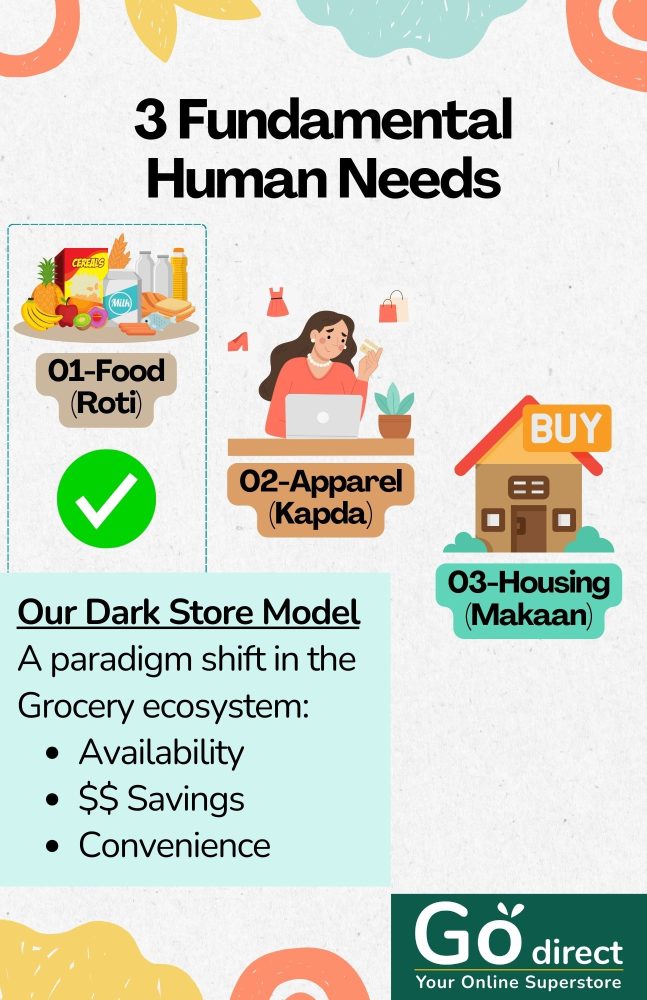Every startup is built to address one or more needs of a population cluster, a society, a nation or the world. This is typically set forth in the startups mission, vision, and values document. A startup’s market traction, popularity, success, and valuation are all outcomes depending upon how well the consumers (whether B2C or B2B) accept and embrace the offered products or services. When we started ideating GoDirect, one thing was crystal clear that we are building a platform that is going to positively impact (or even fundamentally change) the food and beverage ecosystem in Canada, and will potentially change the way grocery shopping happens in the country. And while we were laying the founding stones, we knew that food (or roti as it is commonly referred in Hindi) is going to be the fundamental pillar, in addition to the other two supporting pillars i.e. clothing (kapda) and housing (makaan) at some point in its journey. Lets delve a bit on the first pillar i.e. food. Food when processed and packaged into durable plastic packs becomes a commodity which can be transported across the globe and be available to consumers for a longer period of time. This food is then made available at various sales and distribution points in a food supply chain like distributors, wholesalers, retailers and eventually end consumers. Although all links in this supply chain have their unique role and importance, the last leg i.e. a consumer fulfilment points are perhaps the most important from a food security standpoint. Commonly known as retailers, these businesses are conveniently located within a population cluster to facilitate an efficient pickup, handover or delivery of food and beverage products with consumers.


